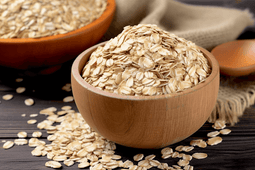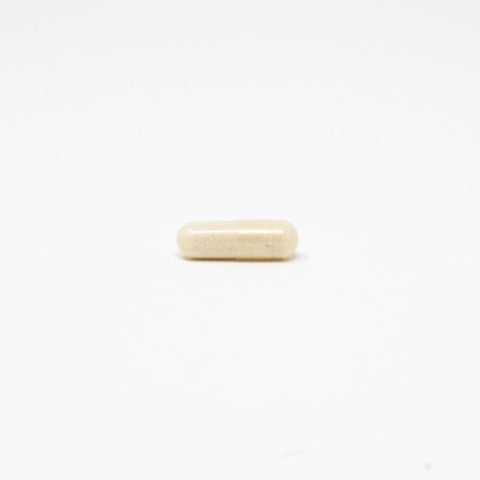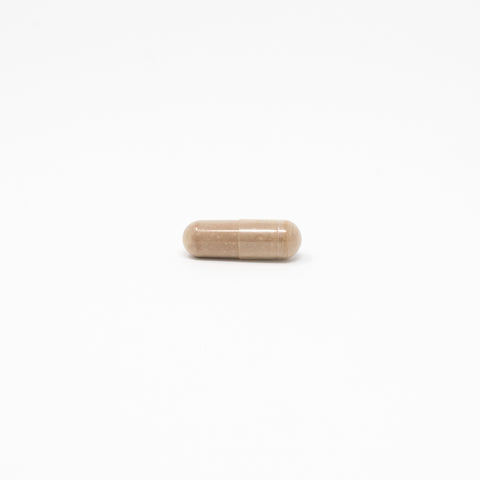What to Know On Vitamin D Custom Supplement Packs
Last updated:

What is Vitamin D? / Where does it come from?
If you feel sad and unmotivated during the long, dark winter months, you're not alone! This may be due to low levels of vitamin D. Vitamin D is a mood-boosting nutrient that you produce when exposed to direct sunlight. You won't often get the amount of vitamin D you need from food sources, instead, you'll rely on sun exposure to make a significant difference in your vitamin D intake.
In this article, we explore the health benefits of the "sunshine vitamin" and how you can optimize your vitamin D levels all year round, even when the sunlight seems scarce.
Vitamin D is a fat-soluble nutrient that humans produce via sun exposure. When UVB rays from the sun hit human skin, 7-dehydrocholesterol is converted into active vitamin D3, also known as cholecalciferol. As it's synthesized from cholesterol, vitamin D3 acts more like a hormone than a vitamin in the body. This hormone helps with calcium absorption from the gut to the bloodstream. By regulating the amount of calcium and phosphate in your body, vitamin D plays an important role in the overall health of your bones, teeth, and muscles.
How Vitamin D Works
Vitamin D3 is involved in many physiological processes and has been found to influence around 3,000 genes in the body. Almost all human cells have vitamin D3 receptors, making each dose a key nutrient for cell differentiation and growth. Essentially, the effect of vitamin D can be felt throughout all your tissues and cells.
One of the most well-known health benefits of vitamin D is the ability to regulate the body's mineral balance for strong bones. It enhances calcium and phosphorus absorption in the gut and prevents calcium loss (1). This is essential for strengthening bones and teeth, promoting nerve cell activity, and regulating muscle contraction and relaxation. Older adults can often benefit from increased vitamin D production to repair weak bones and allow the body to take on a more active form.
It's best to consume vitamin D3 with vitamin K2. These two work synergistically to promote healthy calcium metabolism and a lower risk of bone disease. Vitamin K2 activates the proteins osteocalcin and matrix GLA that bind to calcium and direct it into your bones. Meanwhile, vitamin D regulates the amount of calcium present, so you don't get caught with any toxicity or harmful levels. Boosting the baseline of both nutrients may prevent the calcification of blood vessels and other tissues (2). Getting enough vitamin D will help you avoid bone fractures while keeping calcium where it belongs and out of your bloodstream.
Symptoms and Risk Factors for Vitamin D Deficiency
Low vitamin D is a global problem that affects many healthy individuals when they don't get enough sunlight exposure. Many older people, young adults, and adolescents spend their days indoors and don't get enough direct sunlight. This is especially true during the winter months when the sun sets much earlier. During these seasons, it can be helpful to utilize vitamin D supplements to see a significant difference in your mood and overall health.
Additional risk factors for vitamin D deficiency include living in a cold climate, having a darker skin tone, struggling with fat malabsorption, and being vegan or vegetarian (seeing as animal products can offer some vitamin D). If you think you are at high risk for any of these reasons, you may want to look into getting a dietary supplement to guarantee you get enough vitamin D no matter the season or time of day.
First, it's important to know and understand the signs that you may have a vitamin D deficiency. Certain medical conditions and side effects are more present when you don't get so much sun exposure or you have a vitamin D insufficiency. Talk to your healthcare provider about your vitamin D status to decide your next steps and protective measures for your body's health. Some signs you may have low vitamin D levels include:
- Frequent infections
- Fatigue
- Sore muscles
- Osteoporosis
- Bone pain
- Chronic inflammation
- Depression
- Seasonal affective disorder (SAD)
Besides getting more sunlight, the best way to boost vitamin D levels is via diet and supplementation. There are limited dietary sources of vitamin D, but it can be obtained in small amounts from fatty fish, grass-fed butter, cheese, egg yolks, organ meats, and fortified cereals. However, most people require extra support from a vitamin D3 supplement. No matter their years of age, healthy people can feel the beneficial effect of vitamin D supplements throughout their daily lives and the progress their mood takes after daily supplement intake.

Health Benefits of Vitamin D
Getting enough sunlight and ultraviolet light may not seem like something that affects your overall health in big ways. This couldn't be further from the truth. You need a regular dietary intake of vitamin D for a number of health reasons that have been proven in clinical trials. Here are four science-based benefits of vitamin D3 supplements to fight your deficiency.
Supports Bone Health
As mentioned, vitamin D3 (when used in conjunction with vitamin K2) maintains healthy calcium and phosphorus levels necessary to promote strong bones and prevent fractures. It's particularly beneficial for older people, who are at increased risk for low bone mineral density, osteoporosis, and fractures. A study on men aged 65 years and older found that blood levels of vitamin D below 20 ng/ml were detrimental to hip bone mineral density (3). No matter your age group, a lack of vitamin D can negatively impact your whole skeleton which impacts your whole body. Maintain healthy bones when you make your vitamin K2 and vitamin D requirements a priority for your daily intake.
Boosts Immunity
Vitamin D3 is a great supplement to keep on hand during cold and flu season. Receptors on immune cells allow vitamin D3 to interact closely with your immune system and strengthen your defenses.
A 2017 systematic review found that vitamin D daily supplements or weekly supplements reduced the risk of acute respiratory tract infections − particularly for vitamin D deficient people (4).
Current evidence from another interesting 2020 study found that lower levels of vitamin D3 were associated with poor COVID-19 outcomes (5). No matter the infection or virus you're fighting, you can boost your immune response when you commit to your dietary allowance of vitamin D.
Regulates Mood
Vitamin D3 supports brain function and mental well-being. Do you know how sitting out in the sun just makes you feel happier? That is because of the higher dose of vitamin D being absorbed by your skin pigment. This is likely why seasonal affective disorder (SAD), characterized by low mood and motivation, is common during northern hemisphere winters when vitamin D3 levels plummet.
Research on adults has found that low vitamin D is associated with mood disorders and poor cognitive performance (6). Fortunately, regular vitamin D3 supplementation boosts blood levels and improves symptoms of depression, especially when a higher dose is taken during the winter months when there is minimal sun exposure (7).
Supports Muscle Strength and Fitness
D3 supplementation promotes muscle strength and performance, allowing you to stay fit even as you age.
Healthy vitamin D levels are associated with greater physical performance, improved muscle tissue composition, and may even help to reduce the risk of falls in older people (8). Avoid muscle weakness and negative health outcomes when you rely on supplemental vitamin D.
Make Vitamin D Part of Your Daily Diet

Okay, you knew it was coming... time for a shameless plug. Do you think the benefits of adding vitamin D to your daily diet could help you? Create a personalized daily vitamin pack from VitaRx that includes vitamin D and any other vitamins, minerals, or supplements you think could help. Start by adding vitamin d to your custom kit here!
Vitamin D

Resources:
- https://academic.oup.com/ajcn/article/80/6/1689S/4690513
- https://www.ncbi.nlm.nih.gov/pmc/articles/PMC4566462/
- https://www.ncbi.nlm.nih.gov/pmc/articles/PMC2730873
- https://pubmed.ncbi.nlm.nih.gov/28202713/
- https://link.springer.com/article/10.1007/s40520-020-01570-8
- https://pubmed.ncbi.nlm.nih.gov/17138809/
- https://pubmed.ncbi.nlm.nih.gov/19616172/
- https://www.ncbi.nlm.nih.gov/pmc/articles/PMC2901845/





